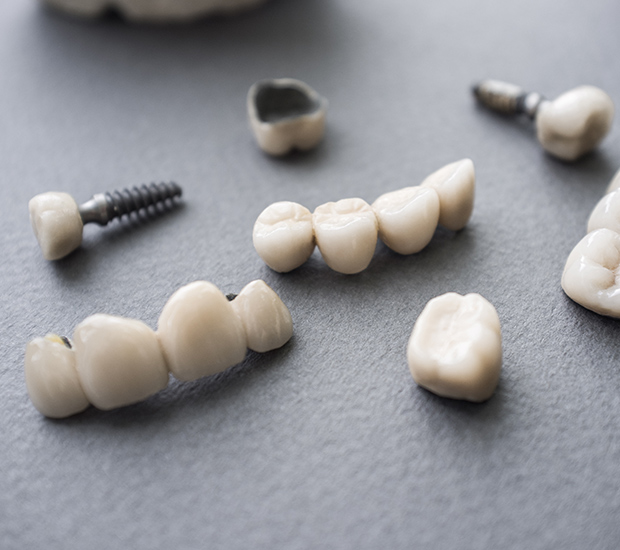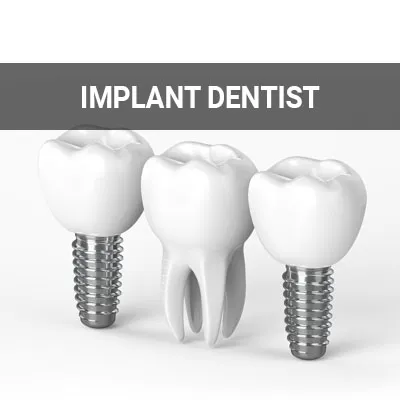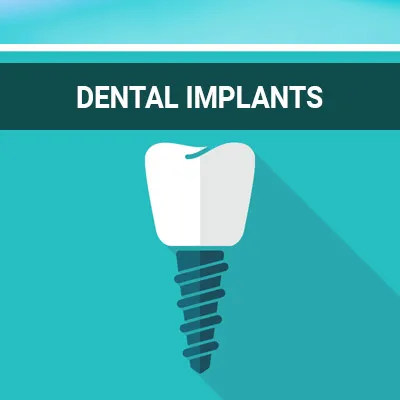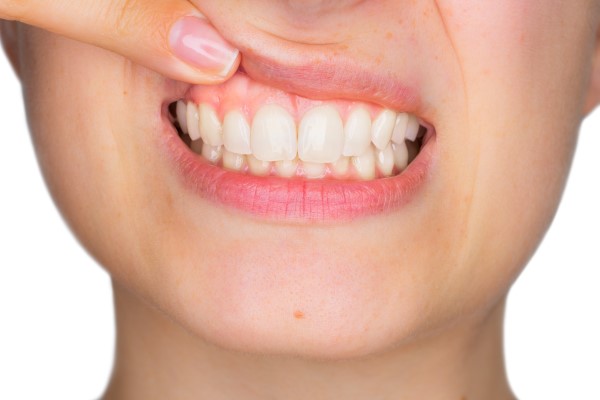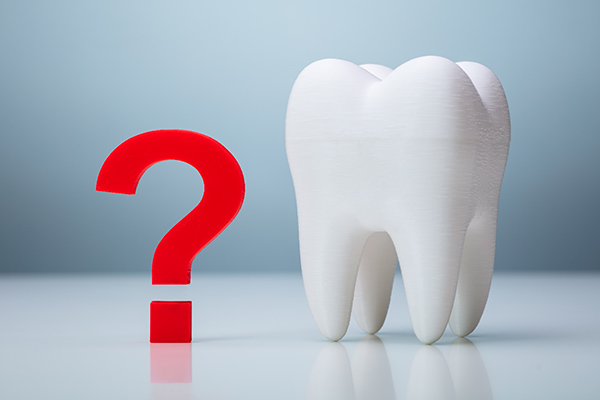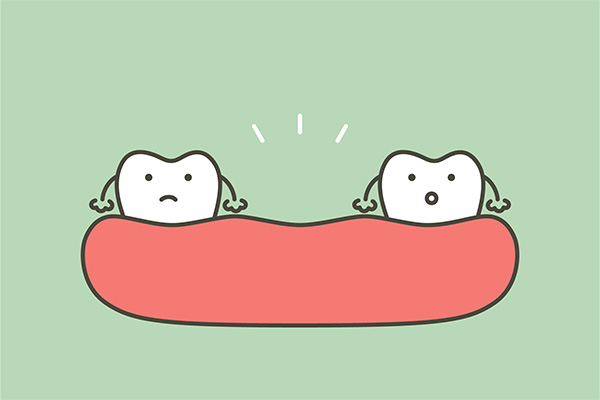The Difference Between Dental Implants and Mini Dental Implants Rosenberg, TX
Many have found increased confidence, improved daily function, and better oral health through teeth replacement with implants or mini dental implants. We can help patients determine the most effective option for their needs. By learning more about possible replacement options during a consultation, we can help patients determine which option will give them a smile they desire.
During a consultation, we will take the time to answer questions about the process. Everyone should feel confident when smiling in public, and no one should feel insecure about imperfections caused by missing teeth. Give us a call at (832) 361-3929 to learn more about implants and mini dental implants for teeth replacement.
Understanding Mini Dental Implants
You can achieve a more attractive smile, address oral health concerns, and improve overall mouth function through teeth replacement with mini dental implants. Mini dental implants are a type of dental implant that is used to support dentures, bridges, or a crown. Implants and mini dental implants are available at KRB Dentistry in Rosenberg and the surrounding area. You can learn more about mini dental implants and what steps are involved in the treatment process during your initial consultation.
The greatest difference between mini implants and traditional implants is size, giving them their name. In most cases, traditional dental implants are typically between 4 and 6 mm, whereas mini-implants range from 2 to 3 mm. Placing mini dental implants will also have differences from the traditional procedure. In many cases, the mini dental implant procedure is less invasive.
“In most cases, traditional dental implants are typically between 4 and 6 mm, whereas mini-implants range from 2 to 3 mm.”
Eligibility for Mini Dental Implants
When a tooth is lost, bone degeneration commences. If it takes too long before seeking restoration, the patient may have lost too much bone density to support a regular implant. Jawbone atrophy may also be a result of periodontitis (gum disease), teeth misalignment, or damage from a broken or knocked-out tooth. In this case, the dentist may recommend mini dental implants.
Additional cases where the dentist may suggest mini implants include:
- For front teeth restorations
- Premolar replacements
- Teeth positioned in a narrow gap
- For small teeth
- Where a person suffers from a chronic illness, has undergone radiation therapy or smokes heavily.
The only qualified professional that can determine which type of implant is right for you is an experienced implant dentist.
“If it takes too long before seeking restoration, the patient may have lost too much bone density to support a regular implant.”
Benefits of Mini Dental Implants
As mentioned earlier, the most significant benefit of mini dental implants is that it allows patients who have lost a good portion of their jawbone structure to enjoy the benefits of dental implants. Also, those who have endured poorly fitting lower dentures can get four to six mini implants to support the denture. Implant-supported dentures are more comfortable and stable than regular dentures.
Another benefit is that mini dental implants remove the need for major procedures – the placement procedure is relatively easy and non-invasive. Without invasive procedures, the healing time is faster since there are no incisions and suturing. The entire implant restoration procedure takes less time compared to regular dental implants and requires fewer office visits.
Both mini implants and standard implants help to prevent further tooth loss or atrophy. When a tooth is lost, the jawbone loses the stimulation provided by the tooth roots and starts to shrink gradually. Dental implants stimulate the jaw during chewing or biting to keep the bone healthy.
“Both mini implants and standard implants help to prevent further tooth loss or atrophy.”
Check out what others are saying about our dental services on Yelp: The Difference Between Dental Implants and Mini Dental Implants in Rosenberg, TX
Implants Can Prevent Tooth and Bone Loss
Implants, both traditional and mini, are of the greatest advancements in dentistry as they preserve the jawbone, do not decay, and function just like natural teeth. According to the American Dental Association (ADA), an implant is so strong because of osseointegration, the process in which surrounding bone actually grows around it and holds it in place. This allows for bone preservation and strengthening of the surrounding and underlying tissues. Preserving the teeth, jawbone, and tissue secures surrounding teeth to the bone underneath, preventing or reducing the likelihood of tooth loss.
Bone atrophy refers to the deterioration of the underlying jawbone. Dental implants prevent bone atrophy the same way natural roots do: by sending signals to the implant and surrounding bone. The implant acts as a stimulator to promote bone generation and keep them functioning properly. Both traditional and mini dental implants have this advantage and can prevent tooth and bone loss.
“Dental implants prevent bone atrophy the same way natural roots do: by sending signals to the implant and surrounding bone.”
Questions Answered on This Page
Q. When should I consider mini dental implants?
Q. How do dental implants prevent tooth and bone loss?
Q. How do I choose between traditional and mini dental implants?
Q. What are eligibility requirements for mini dental implants?
Q. What are the benefits of mini dental implants?
People Also Ask
Q. Who is a good candidate for dental implants?
Q. What happens after the procedure?
Q. How do dental implants compare to dentures?
Q. How do dentists determine whether a patient is a candidate for dental implants?
Q. What can patients do to reduce their anxiety about receiving a dental implant?
Q. What dietary and lifestyle changes do I need to make after my dental implant procedure?
Choosing Between Implants and Mini Dental Implants
Implants are often best for replacing a single tooth, where mini dental implants are perhaps preferable when looking to support dentures. However, every patient is unique and should evaluate the pros and cons of each option, along with discussing the steps involved in the process with a dentist before making a final decision.
A dental professional can place mini dental implants in the jaw, similar to that of a traditional dental implant. Mini dental implants are the only dental restoration option that preserves natural bone. With that said, traditional implants typically require more bone density than mini implants to ensure a secure hold long-term.
How to Choose the Most Effective Option for You
While traditional implant placement is not as invasive, there are similarities. Both options require accessing the jaw and placing the implant into the bone, but mini dental implants do not require as much support. However, mini implants may not provide as secure a hold. Although the placement of the artificial tooth happens sooner, and the recovery time is generally much quicker with mini dental implants.
Your dentist may recommend one option over the other depending on the amount of bone density you currently have. Mini dental implants are possibly an option at times when traditional implants are not. If both are viable long-term solutions, then the patient's preference will likely be the deciding factor.
“Mini dental implants are the only dental restoration option that preserves natural bone.”
Frequently Asked Questions About Implants and Mini Implants
Q. Are there differences between implants and mini dental implants in terms of durability?
A. Dental implants are created from titanium, a biocompatible metal that fuses with the jawbone. Both options are highly durable, but their lifespan typically depends on the level of care provided. By brushing, flossing, and visiting the dentist regularly, you can keep your oral cavity and implants in excellent condition for a long time.
Q. Will mini dental implants be as strong as my natural teeth?
A. In most cases, mini implants have the same strength – if not more – than natural teeth. Mini implants provide full dental functionality and patients will be able to eat all their favorite meals. However, you need to be careful since implant restorations are just as vulnerable to damages as natural teeth.
Q. Is the placement procedure painful?
A. Many patients often register their surprise when they realize the convenience of the implant procedure. If you suffer from dental anxiety, you should talk to the dentist. They will discuss options to keep you as comfortable as possible throughout the procedure.
Q. How long does recovery take?
A. With mini dental implants, you can return to your routine almost immediately. The procedure is minimally invasive, which allows for fairly fast healing. In the first 24 hours after the procedure, you may need to take only soft foods and follow your dentist's instructions for a full recovery.
Dental Implant Terminology
Call Us Today
If you are interested in restoring your smile, call us at 832-361-3929 for more information about implants and mini dental implants. We are here to help you make the right decision about replacing missing or severely damaged teeth. Our friendly team is willing and able to answer any questions you have about the process.
Helpful Related Links
- American Dental Association (ADA). Glossary of Dental Clinical Terms. 2024
- American Academy of Cosmetic Dentistry® (AACD). Home Page. 2024
- WebMD. WebMD’s Oral Care Guide. 2024
About our business, license, and website security
- KRB Dentistry was established in 2014.
- We accept the following payment methods: American Express, Cash, Discover, MasterCard, and Visa
- We serve patients from the following counties: Fort Bend County
- We serve patients from the following cities: Rosenberg, Richmond, Cumings, Pecan Grove, and Pleak
- TX (License #19523). View License Information and Specifics
- National Provider Identifier Database (1124126479). View NPI Registry Information
- Healthgrades. View Background Information and Reviews
- Norton Safe Web. View Details
- Trend Micro Site Safety Center. View Details
Back to top of The Difference Between Dental Implants and Mini Dental Implants
QR code for The Difference Between Dental Implants and Mini Dental Implants
